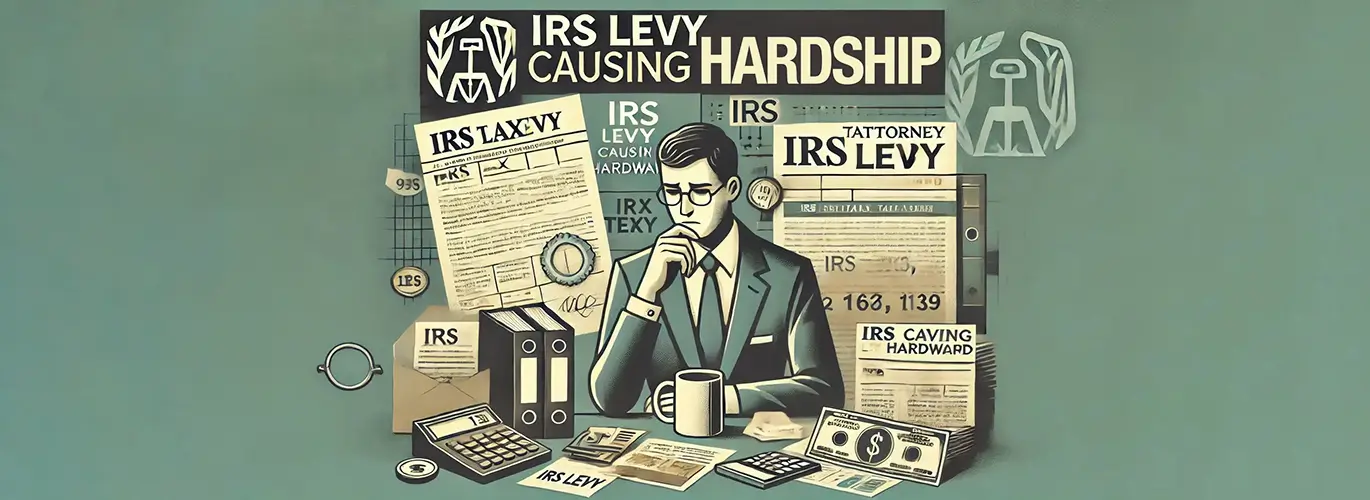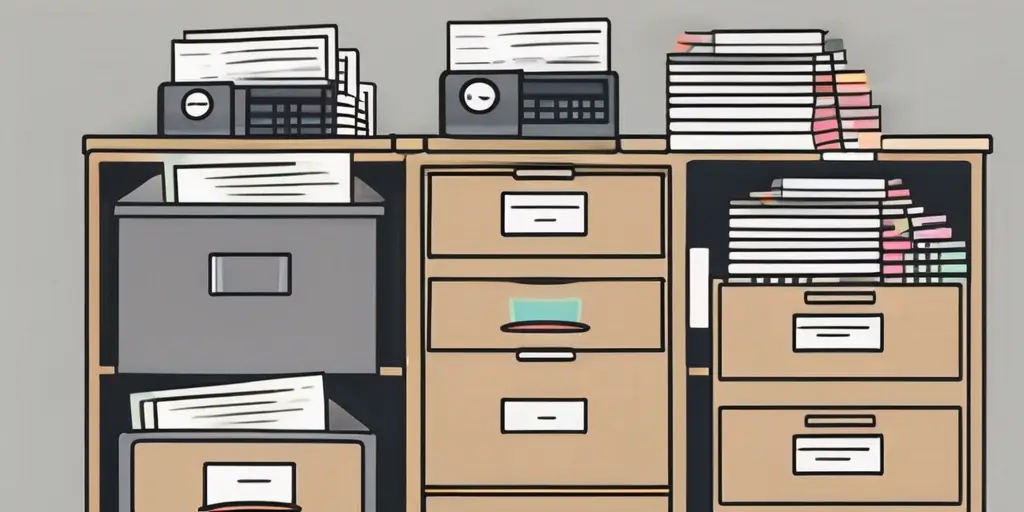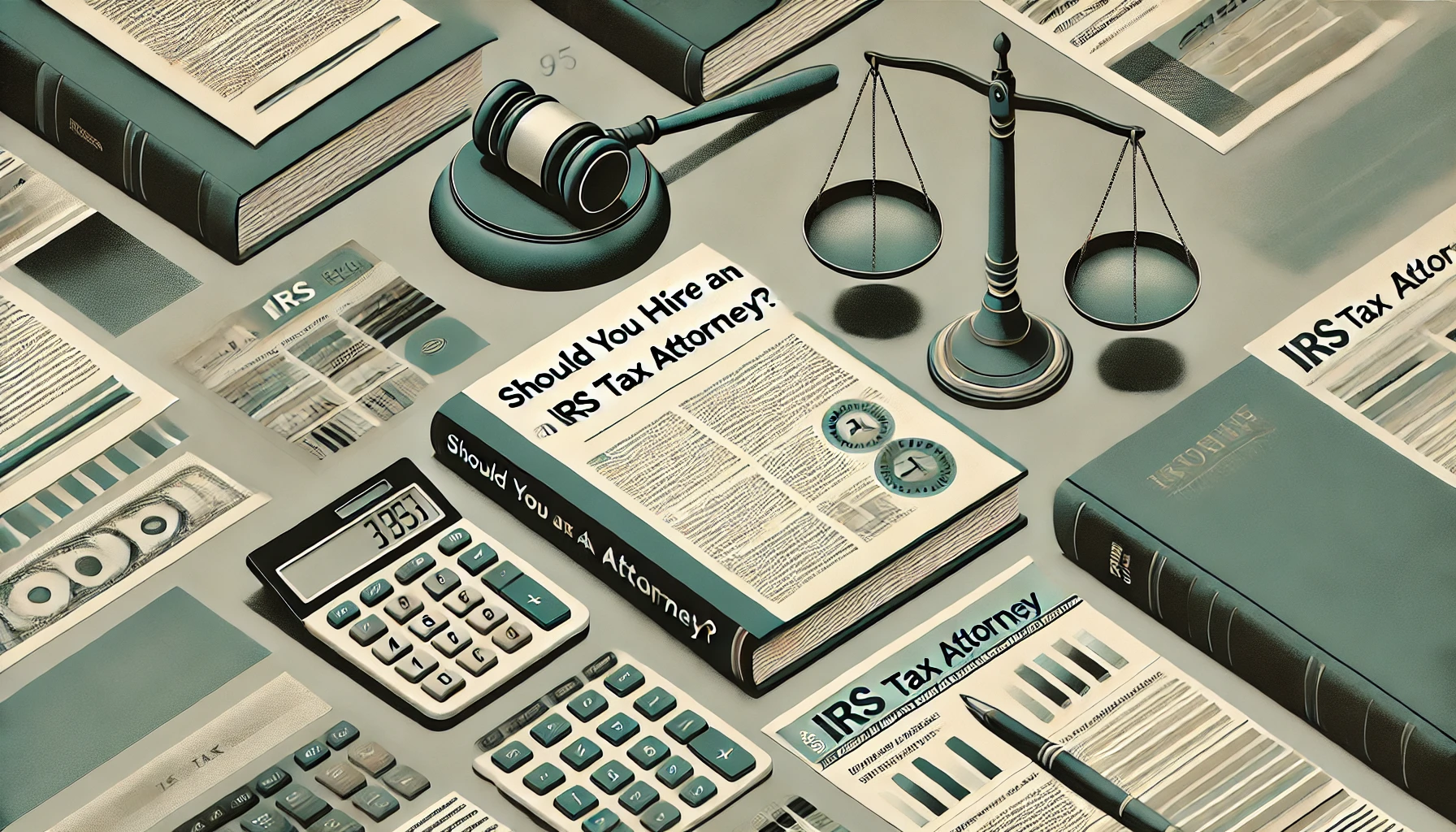In the realm of finance, few things are as daunting as an IRS levy. This legal action, issued by the Internal Revenue Service, has the power to disrupt your financial stability, causing significant hardship. It is essential to understand the concept of an IRS levy and its impact on personal finances, as well as its connection to financial hardship. Additionally, being aware of the legal aspects of an IRS levy and exploring ways to mitigate its effects can help you navigate this challenging situation with more confidence.
Understanding the Concept of an IRS Levy
Before delving into the effects of an IRS levy, let’s take a closer look at what it entails. An IRS levy is a severe action undertaken by the Internal Revenue Service to collect unpaid taxes. This legal procedure allows the IRS to seize your assets, such as bank accounts, property, vehicles, and even Social Security benefits, to satisfy the outstanding tax debt.
It is essential to understand that an IRS levy is not a step taken lightly by the IRS. The process of issuing a levy involves several notices and opportunities for the taxpayer to address the outstanding tax debt before seizure of assets occurs. This means that taxpayers have a chance to resolve the issue through payment arrangements or other means before facing the consequences of a levy.
Definition of an IRS Levy
An IRS levy is a legal seizure of your property to cover unpaid tax liabilities. It is different from a tax lien, which is a claim on your assets to secure the debt. While a tax lien serves as a warning and can harm your credit score, an IRS levy directly takes possession of your assets to settle the tax debt.
When the IRS decides to levy a taxpayer’s assets, it typically does so as a last resort after multiple attempts to collect the unpaid taxes. The IRS must follow specific procedures and provide the taxpayer with due process rights before executing a levy. This includes sending notices to the taxpayer’s last known address and giving them an opportunity to appeal the decision through a Collection Due Process hearing.
How an IRS Levy Works
When you receive an IRS levy notice, it is crucial not to ignore it. Generally, the IRS will send a Final Notice of Intent to Levy, providing you with a thirty-day window to resolve the issue before the levy takes effect. If you fail to take action within this period, the IRS gains the authority to seize your assets.
Upon seizing your assets, the IRS will sell them to satisfy your tax debt. However, there are exemptions that protect certain assets deemed necessary for basic living and working needs. It is important to consult a tax professional or attorney to understand your rights and explore options to minimize the impact of an IRS levy.
It is worth noting that the IRS has the authority to levy not only tangible assets like real estate and vehicles but also intangible assets such as wages, retirement accounts, and rental income. This broad authority underscores the importance of addressing tax issues promptly to avoid the serious consequences of an IRS levy on your financial well-being.
The Impact of an IRS Levy on Personal Finances
An IRS levy can trigger immediate and long-term financial consequences. Understanding these implications can help you prepare and navigate the challenges that lie ahead.
It is crucial to note that an IRS levy is a legal seizure of your assets to satisfy a tax debt. This process is not initiated without prior notice; the IRS typically sends a series of notices informing you of the impending levy. Ignoring these notices can escalate the situation, leading to more severe financial repercussions.
Immediate Financial Consequences
As the IRS seizes your assets, you may face a sudden loss of funds and property. For instance, a bank levy can result in frozen accounts, leaving you without access to your own money. This can cause difficulties in meeting daily living expenses, paying bills, and covering essential needs. Additionally, wage garnishment can further exacerbate the financial strain, as a portion of your income is diverted directly to the IRS.
Moreover, an IRS levy can extend beyond your bank accounts and wages. The IRS has the authority to seize other assets such as vehicles, real estate, and even retirement accounts. This broad scope of seizure can significantly impact your financial stability and future planning.
Long-Term Financial Implications
Beyond the immediate consequences, an IRS levy can have long-lasting effects on your financial well-being. Your credit score may suffer due to the delinquent tax debt, potentially making it harder to secure loans or obtain favorable interest rates in the future. Moreover, the seizures and legal actions can disrupt your financial stability, making it challenging to regain control over your finances.
It is essential to seek professional assistance when facing an IRS levy to explore options for resolution. Taking proactive steps to address the tax debt and negotiate with the IRS can help mitigate the long-term financial implications and pave the way for a more stable financial future.
IRS Levy and Its Connection to Hardship
The interrelation between an IRS levy and financial hardship is a complex and often distressing reality that many individuals face. While the IRS levy is a necessary tool for the government to collect unpaid taxes, its implications on those experiencing financial hardship are profound and far-reaching.
One significant aspect to consider is the emotional toll that an IRS levy can take on individuals already grappling with financial difficulties. The stress and anxiety of facing potential asset seizure or wage garnishment can further exacerbate existing mental health challenges, creating a vicious cycle of financial and emotional strain.
Defining Financial Hardship
Financial hardship refers to a situation where an individual or household is not only struggling to meet their financial obligations but is also facing a significant decline in their overall quality of life. This decline can manifest in various forms, such as the inability to afford basic necessities, constant fear of eviction or foreclosure, and a sense of hopelessness about the future.
Moreover, the ripple effects of financial hardship caused by an IRS levy can extend beyond the individual directly impacted. Families, dependents, and even communities connected to the affected individual may also experience the repercussions, further deepening the societal impact of financial distress.
How an IRS Levy Can Lead to Hardship
An IRS levy can act as a catalyst that propels individuals from a precarious financial situation into a full-blown crisis. The sudden loss of assets, frozen bank accounts, or reduced income due to wage garnishment can strip away any semblance of financial stability, leaving individuals vulnerable and desperate for solutions.
Furthermore, the long-term consequences of an IRS levy on financial hardship cannot be understated. The road to recovery from such a setback is often arduous and filled with obstacles, requiring individuals to navigate complex financial systems, seek legal assistance, and rebuild their financial standing from the ground up.
Legal Aspects of an IRS Levy
While an IRS levy might seem like an unassailable action, it is essential to understand your rights as a taxpayer. Familiarizing yourself with the legal aspects can empower you to navigate this process more effectively.
Legal Rights of Taxpayers
As a taxpayer, you have certain rights when facing an IRS levy. These rights include the right to receive clear communication from the IRS, the right to appeal the levy action, and the right to seek professional representation throughout the process.
It is crucial to assert your rights and ensure that the IRS follows the correct procedures when enforcing a levy. Seeking advice from a tax professional or attorney with expertise in dealing with IRS matters can help protect your rights and potentially mitigate the impact of the levy.
IRS Regulations Regarding Levies and Hardship
The IRS has established regulations concerning levies and hardship situations. While an IRS levy can still proceed, even in cases of hardship, the IRS recognizes the need for vulnerable taxpayers to retain basic assets for their living and working needs.
By demonstrating significant financial hardship, you may be able to appeal to the IRS to release certain assets or negotiate more manageable payment options. Engaging with the IRS and providing evidence of your vulnerable financial situation can potentially reduce the severity of the levy’s impact.
Mitigating the Effects of an IRS Levy
Although an IRS levy can seem overwhelming, there are steps you can take to mitigate its effects and regain control over your finances.
Seeking Professional Financial Advice
When facing an IRS levy, it is crucial to seek professional financial advice. A tax professional or attorney with experience in dealing with IRS matters can guide you through the process, protect your rights, and explore options to minimize the impact of the levy.
They can help you assess your financial situation, negotiate with the IRS, and potentially find alternative ways to settle your tax debt or ensure that the levy has the least disruptive effect on your finances.
Negotiating with the IRS
Communication with the IRS is key when navigating an IRS levy. Instead of ignoring the situation, actively engage with the IRS and explore the possibility of negotiating a resolution.
There may be opportunities to reach a settlement through an offer in compromise, where you can potentially settle your tax debt for less than the full amount owed. Alternatively, an installment agreement may provide you with an extended period to repay your tax debt in manageable monthly installments.
By working alongside the IRS and demonstrating your commitment to resolving the issue, you increase the likelihood of finding a mutually beneficial resolution.
In Conclusion
An IRS levy is a daunting event that can cause significant financial hardship. By fully understanding the concept of an IRS levy and its implications, familiarizing yourself with your legal rights, and seeking professional advice, you can navigate this challenging situation more effectively. Remember, while an IRS levy can disrupt your finances, there are ways to mitigate its effects and regain control over your financial well-being.



